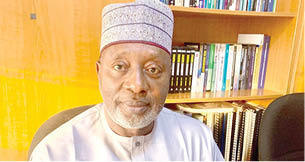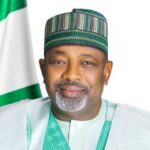Alhaji Murtala Aliyu is the Secretary General of the Arewa Consultative Forum (ACF), the political and cultural association of leaders in Northern Nigeria. In this interview with Weekend Trust, the Matawallen Gombe and former Minister of Mines and Steel, addressed the clamour for return to regional government.
What do you make of the current agitations for regional government in Nigeria?
People often forget the historical context of our current state structure. The agitation for minority rights began during the colonial era, leading to the establishment of the Willink Commission, which addressed these concerns. The commission recommended that there should be no limits to these agitations, among others.
For example, in my state, Gombe, the smallest in the North, we have 11 local governments and 23 distinct ethnic groups. If each group seeks its own micro-nation, it complicates matters. The Willink Commission highlighted this issue, and when the civil war started, 12 states were created based on these sentiments. States were formed to address the demands of minorities, resulting in a total of six states each in the North and South.
Today, the cries for minority rights remain. So I think that creating, merging states back to regions or converging states into one region will not solve the problem. The agitation will continue.
If regionalism will not solve the problem, why are these sentiments and agitations arising now?
The issue revolves around sharing political power. When elites view national responsibilities as a resource to be divided, it fosters agitation for regional representation. Nigeria needs to focus on unity rather than fragmenting interests for political gain.
For instance, minorities in northern states are seeking regional recognition. However, there are various minorities within these states, like in Borno, Gombe, Bauchi, Adamawa, and Taraba. In Benue State, for instance, the Tiv are the majority, while the Idoma and others are minorities. Creating a region for minorities raises questions about what that really entails.
The push for a separate region seems more emotional than practical. We need to sit down and identify the real issues at play. The ACF is open to discussions, whether at a national conference or otherwise, but emotional demands won’t solve the problems.
We must ask ourselves what has changed since the creation of states and what issues still need to be addressed.
We say, okay, parliamentary system divides our head. That’s why we came to a presidential system where you have to get votes from a certain proportion of the country before you become the president of the country and so on. Instead of saying, okay, you are from a small corner and you are representing that small corner and you are now coming to be the prime minister of the country. So all these things were issues that were addressed to bring us to where we are. If there are problems with our current system, we should review and interrogate it, rather than revert to a previous structure, hoping it will provide the solution.
Some persons feel that the North is not interested in reverting to a regional system. What is the region’s position on regionalism as the Secretary of ACF?
In a past interview, I stated that the North is open to any discussion. If people believe that regionalism is the best solution, they should convince us. Conversely, if we decide to maintain our current system, we need to be equally convinced. We do not have a fixed position; rather, we should keep options open. Anyone advocating for a specific agenda should present convincing arguments for their viewpoint.
Despite previous discussions, why do these agitations persist?
The root cause lies in leadership dynamics. Leadership often focuses on sharing power rather than addressing responsibilities. Many believe that consolidating their interests will yield greater benefits. Politicians should sincerely address fundamental issues like poverty, youth unemployment, and skills development. By focusing on the future, we can reduce agitation regarding our current structure.
Creating states has not resolved these concerns, as leaders are still from the same regions, yet people claim marginalisation. We need to resolve issues at the state level, as well as ensure fair representation at the national level through the Federal Character Commission. Leadership should prioritise justice and equity. If we approach these issues collaboratively, many agitations could dissipate.
If the majority concludes that we should revert to regionalism, what format would you suggest to address these issues?
Those advocating for regionalism should propose the structure. Historically, minority groups in various regions agitated for the creation of states, which has since occurred. Today, there are more states than before. For example, the former Midwest now comprises Edo and Delta states, and the South-east has five states.
In the North, there are similar dynamics. When a governor from Plateau State was in power, concerns arose about unequal benefits for specific ethnic groups. Fair leadership can mitigate such issues. The key is ensuring fairness regardless of background.
Some proponents of regionalism, particularly from the North, reference the era of late Sardauna, suggesting that the region thrived under that structure. What benefits could the North expect from regionalism with the current leadership?
During Sardauna’s tenure as Premier, there were still agitations. The United Middle-Belt Congress sought alliances with the Action Group, and the Borno Youth Movement, led by Ibrahim Imam, distanced itself from the NPC. Similarly, NEPU, a northern party, also formed alliances.
The challenge is not the existence of differences but the management of those differences. Sardauna recognised these complexities and worked to accommodate various interests. However, as states were created, new agitations arose, particularly among minority groups. This identity politics continues to be a challenge.
Leadership should be viewed not as a benefit but as a responsibility. When leaders understand this principle, agitation for various issues is likely to decrease.
Do you believe the current crop of leaders can make regionalism work for Nigerians?
Have they even been fair in their own states? Show me one leader who has been fair, and I’ll say, let him lead the North. When Sir Ahmadu Bello was Premier, the circumstances were different. In 1957, the Northern government had only 294 senior civil servants, and 211 of them were expatriates. Out of the remaining 83, only 41 were from the North. You could gather them all in one room. Today, each state has tens of thousands of civil servants, with a large number at senior levels.
Look at the situation in Kaduna between the northern and southern parts of the state. At one point, Governor Ahmed Makarfi tried to ensure fair representation by giving an equal number of positions to southern Kaduna and the other zones. But proportional representation changes over time, and fairness depends on the leader. If a leader can’t unite their state, they shouldn’t claim they can unite the North or the country. They need to demonstrate fairness in their own states first.
Many argue that switching systems—whether parliamentary, six-year single terms, or rotational presidencies—only addresses symptoms and not the root cause.
When institutions are weak, individuals take over. If political parties were strong, they would have think tanks to develop and articulate policies. The electorate could then vote based on those positions, and elected officials could implement changes.
However, this is why organisations like the ACF exist—to address the gaps left by political parties. We recently set up special committees on security and unity, but that won’t solve the national problem. The political parties need to come together, form clear positions, and convince the people. For instance, when the APC campaigned on restructuring, people voted for them based on that promise. But once in power, they either realised restructuring wasn’t feasible or chose not to pursue it.
Political parties should lead the conversation on issues like restructuring. If they leave it to agitating groups, it becomes about grievances and how power is distributed.
Some suggest returning to a parliamentary system, while others propose different governance models. How should these ideas be approached?
Political parties need to think through these proposals. If they believe parliamentary governance is better, they should present a strong case to the public. The same applies to restructuring—whether it’s geographical, ethnic, or demographic. Convince the people why this system would work better than the current one, and the electorate will support it.

 Join Daily Trust WhatsApp Community For Quick Access To News and Happenings Around You.
Join Daily Trust WhatsApp Community For Quick Access To News and Happenings Around You.


